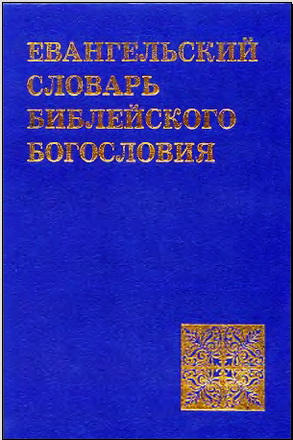
Lockyer - All the Miracles of the Bible
Herbert Lockyer - All the Miracles of the Bible
Grand Rapids, MI: Zondervan, 2017. – 304 p.
ISBN 0-310-28101-6
What is a miracle? A miracle has been defined as a work wrought by a divine power for a divine purpose by means beyond the reach of man. The general idea is that it is something wonderful or unusual–an event, experience, or discovery so singular and strange as to awaken in one the feeling of awe. Phenomena in nature and events in history are labelled “miracle.” If a friend escapes death in a car accident, we are apt to say, “It was a miracle that he was not killed.” The ordinary course of nature is referred to as a miracle. Augustus expresses the thought, “The daily miracle of God has grown cheap by repetition.” But the nature of Christian miracles presents essential features the common use of the word ignores. Professor T. H. Huxley well expressed the need of a previous definition when he wrote, “The first step in this, as in all other discussions, is to come to a clear understanding as to the meaning of the term employed. Argumentation whether miracles are possible, and if possible, credible, is mere beating the air until the arguers have agreed what they mean by the word ‘miracle.’ ”
Webster’s definition of a miracle is clear and concise–“An event or effect in the physical world deviating from the known laws of nature, or transcending our knowledge of these laws; an extra-ordinary, anomalous, or abnormal event brought about by super-human agency.”
Wm. Taylor defines a miracle as, “A work out of the usual sequence of secondary causes and effects which cannot be accounted for by the ordinary operation of those causes, and which is produced by the agency of God through the instrumentality of one who claims to be his representative, and in attestation of the message which he brings.”
The Bible describes its miracles in its own way and from its own points of view. As W. D. Thomson says, “Being exclusively a religious book, the Bible does not set itself to define miracles from the standpoint of nature or science, but from the standpoint of the moral source, the moral power, the moral aim, and the moral effect which they represented. . . . In outlining its definition of these miracles, the Bible wisely selects its terms from a supreme and sole regard to religious and moral considerations; thus simply remaining silent as to all questions bearing on the relations of the miraculous to the internal arrangements, forces, and laws of nature.”
The term “miracle” then, from the Biblical standpoint, is used to describe the wonderful phenomena accompanying the Jewish and Christian revelations, especially at critical moments. The Biblical conception of a miracle is that of some extraordinary work of deity transcending the ordinary powers of nature and wrought in connection with the ends of revelation.
Bible miracles often display the reversal of nature’s course. They form an effect contrary to the established constitution and course of things. Many of the miracles are a sensible deviation from the known laws of nature, proving that God is not only the Maker of all these laws, but also their Sovereign, and consequently He is able to deal with them as He deems fit. Having created what we call “nature,” He has the power to control and change it, suspend or direct its laws for a season, according to His holy will, which is ever good and just.
One of the difficulties voiced by modernism as to the possibility of miracles is that the laws of nature are self-existent and uncaused and that there cannot be any deviation from them. But if these laws were designed by a Supreme Will, surely this Will has the power to introduce or interpose a new agency into them? In Bible miracles, original laws are not suspended, violated, or modified in any way, but a supernatural power outside of nature intervenes with a new effect. As David Hume, the Scottish philosopher, puts it, “A miracle is not a violation of the laws of nature but the introduction of a new agent.” Disturbance entered the world by sin, as nature visibly attests, and God must needs miraculously interfere to nullify that disturbance. That is what He did in many of the miracles the Bible records.
But although God is beyond and above nature, He never violates any of its laws. Neither is nature, as Spinoza expresses it, “the strait jacket from which God cannot escape.” If we deny Him the power to perform miracles, then He is no longer a God of freedom, a living God, above nature and independent of nature, as Trench reminds.
* * *
Assyrian Slaughter
(II Kings 18:13-37; 19; II Chronicles 32:21, 22; Isaiah 37:36)
Sennacherib, who succeeded his father Sargon as king of Assyria, was unrelenting in his revolt against, and invasion of, Judah. His greatest achievement was the creation of Nineveh as a metropolis of his empire. King Hezekiah was terrified by him and, yielding in panic, paid the enormous tribute exacted. Rabshakeh, King Sennacherib’s zealous pleader, reckless of truth, looked upon God as one of the idols to be overthrown. In a letter to Hezekiah, he defied God and tauntingly insulted Hezekiah’s faith in Him. But direct blasphemies against the name of God never go unpunished.
By Isaiah’s oracle, or warrant of God, so lofty in thought and word, Hezekiah was encouraged to defy all insults. He spread the blasphemer’s letter before the Lord and left the matter with Him. The predicted judgment upon the Assyrians was quick and final. The Almighty One, in response to Hezekiah’s prayer, routed and destroyed the enemy of the Lord’s people. The very night of the day when Hezekiah prayed over the threatening letter and Isaiah delivered his oracle, the Assyrian host of 185,000 men perished by a divine, terrible visitation. The destroying angel did his work in silence, suddenness, and secrecy, and Sennacherib’s host perished in a single night. There was the other occasion when God, by His mighty power, destroyed a whole army (Exodus 14:28). No hint is given to the cause of death in Sennacherib’s host. We only know that in the morning, instead of the dreaded invaders, there was an army of 185,000 corpses. “The Lord killeth and maketh alive” (I Samuel 2:6). It was God who brought such a catastrophe to pass (II Kings 19:25).
If our miracle-working God was able to destroy 185,000 with one angel, what is He able to do with a legion of angels? Josephus suggests that this secret and total destruction, an evidence of an invisible and irresistible power, was caused by a fatal, fast-working pestilence. Other writers suggest the agency of a storm with lightning, an earthquake, or a violent dust-laden wind. But as Ellicott comments, “a supernatural causation is involved not only in the immense number slain, and that in one night (Psalm 91:6), but in the coincidence of the event with the predictions of Isaiah, and with the crisis in the history of true religion.” Perhaps Psalm 46-48 was composed by Isaiah to commemorate this great miracle.
Such a direct intervention of divine power resulting in great disaster to the Assyrians did not break the power of Sennacherib, who continued to reign for twenty years and waged many other victorious wars. Ultimately this great king was murdered by his own sons (II Kings 19:37).





Комментарии
Пока нет комментариев. Будьте первым!